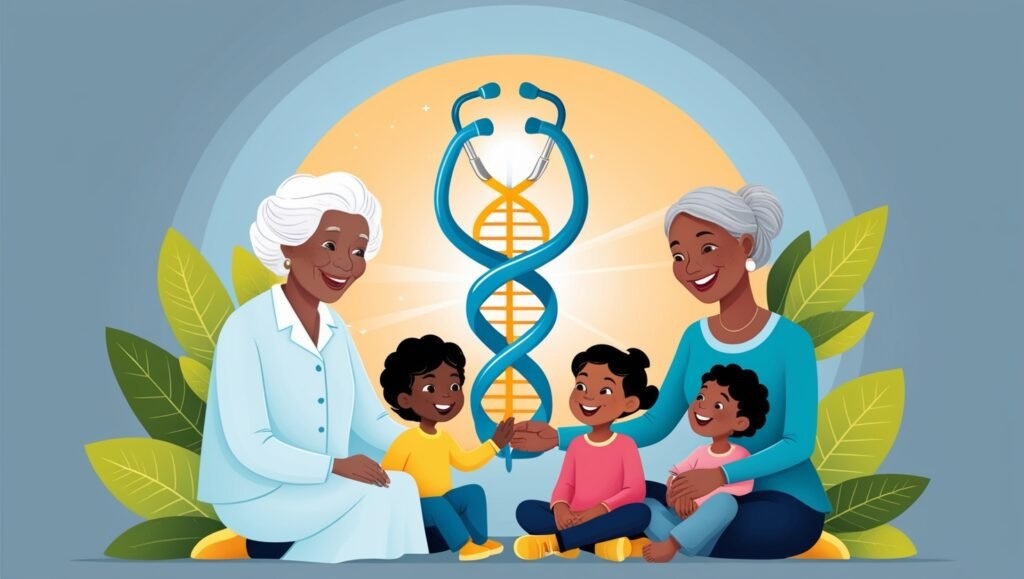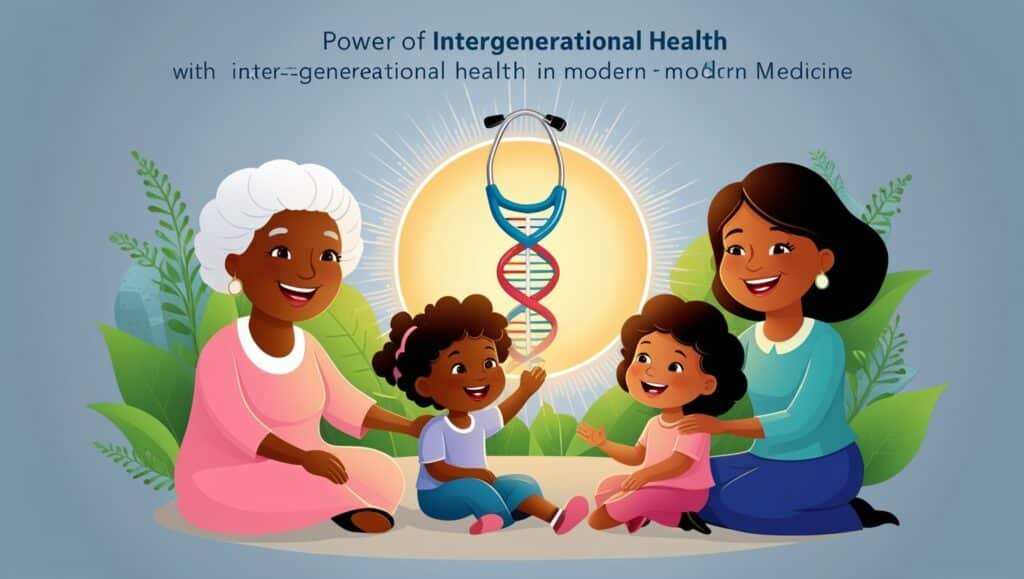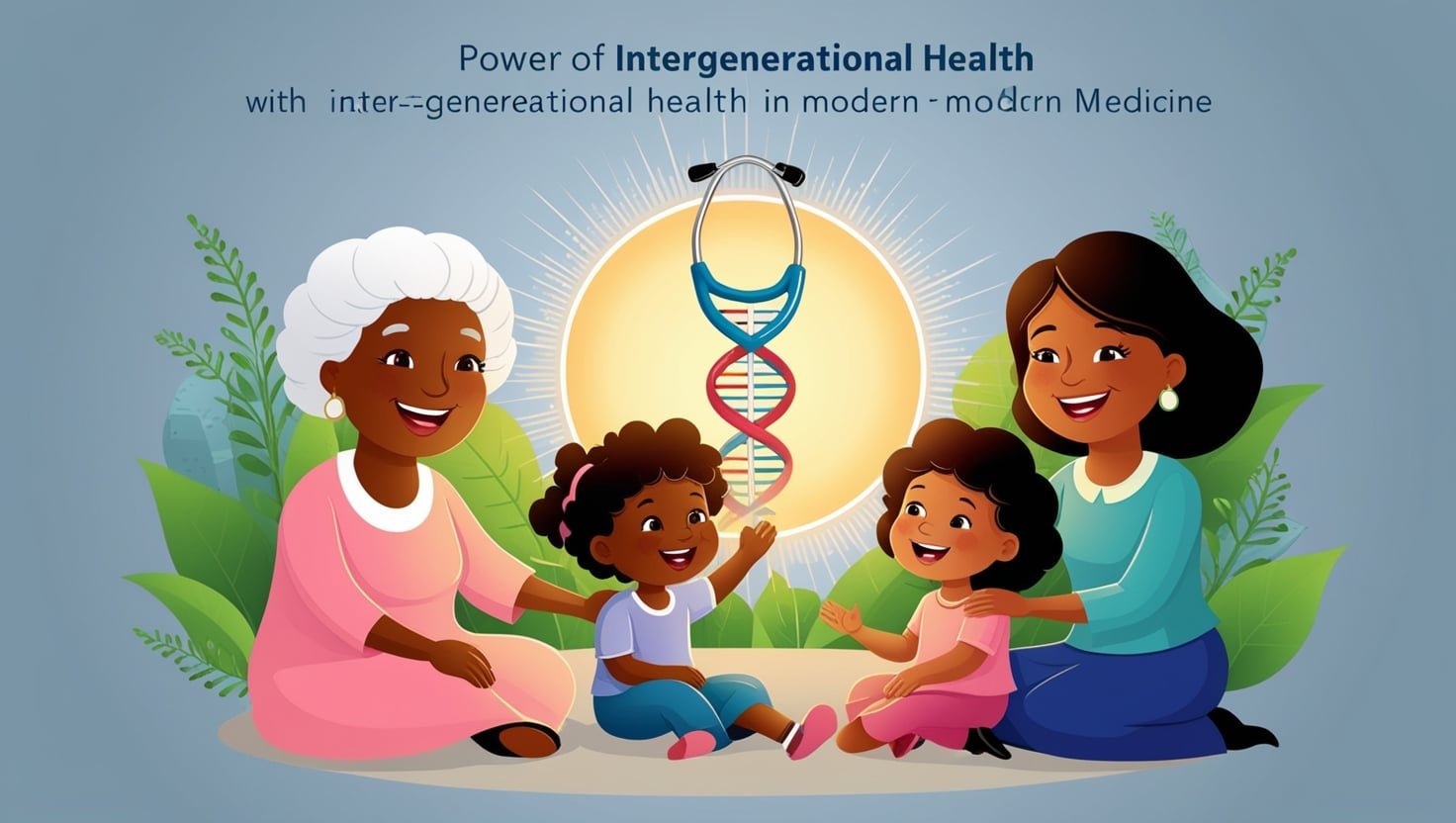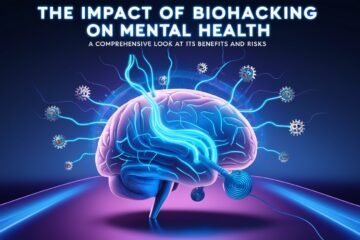The next time we hear about the latest medical breakthroughs, diet fads, and personal habits, let’s not forget an important factor: intergenerational health, that is, how health practices, habits, and even genetic predispositions are passed on from one generation to another. As a doctor, I have seen firsthand the consequences of traditional practices and family health routines, not just on the health of a person but on that of future generations as well. This article explores the power of intergenerational health and its effects on long-term wellness, practical ways through which families can pass on healthy habits.
What is Intergenerational Health?
Intergenerational health refers to common patterns and practices that show healthy behavior within families and communities from generation to generation. It ranges from diet and exercise to mental health practices, including traditional remedies. Therefore, this type of health is a result of genetic predispositions, lifestyle choices, and environmental influence that pass from parents to children. Yet, however important genetics may be, one should by no means forget that health practices and habits can have a direct bearing on the lives of future generations.
Influence of Diet and Nutrition
Perhaps the most evident transfer of health is through eating patterns. Traditional diet consists primarily of nutrient-rich whole foods. The sort of diet is traditional to the family’s cultural repertoire; it impacts, both directly and indirectly, their current status and potentially influences the risk of chronic disease in later life. There is a vast scope of research that shows a child who develops a diet balanced in nutrients will be likely to carry such healthy food choices into adulthood, influenced, therefore, in terms of long-term health.
Generational Diet Patterns and Disease Prevention
For example, diets more rich in vegetables, whole grains, and healthy fats, as characterized by Mediterranean diets, have been demonstrated to lower heart diseases and certain cancers. Therefore, the likelihood of lessening cardiovascular conditions and chronic diseases is increased with intergenerational passing of these eating habits. In turn, diets rich in processed foods and added sugars intergenerationally passed have increased the likelihood of obesity and diabetes, among other related health issues. Through this practice, I have personally been proved of various occasions through some of my family members having stayed within the decreased rate of obese individuals and thus all types of cases. The evident indication of the sharing nature of family meals to make a difference in nutrition still, as study findings say, enhances the healthy conducts as a culture. Watch how different dieting routines transfer health conditions to or between generations.
Basic Medicinal Herbs and Traditional Remedies
Many generations of traditional remedies have been passed down through many families. Most of the traditional remedies include herbs, spices, and other natural products that are used to treat common disorders before the time when modern medicine is used extensively. Not all the traditional remedies are scientifically supported, but most of them have survived up to date simply because they are practically effective and play an important role in holistic health.
Herbal Traditions and Modern Science
There are clinical studies that have promises in some herbal applications. These include anti-inflammatory application for joint aches in the use of ginger and curcumin from turmeric. This use of plants for healing is as old as the times of the first indigenous people. These present studies prove the recognition of such uses by ancient man. Combining modern treatment with a traditional approach to health could lead to an effective holistic treatment to heal. The World Health Organization has a report on traditional medicine.
An excellent example can be referred to here. The age-old dietary preference heavy in ginseng content, green tea, fermented products, etc., that have, in fact been found to be associated to bring about gut health, therefore immunity. Such consumption that has always been through generations is beneficial not just to the instantaneous health but for later sustainability of the body as well.
Mental Illness and Family Life

Intergenerational influence is related to aspects of mental health. The mental well-being of one’s parents, the way they cope with stress, anxiety, and emotional health, and how it impacts children’s understanding of what stress is and how they should deal with it. Families that open up, support each other during good times and bad times, make generations more resilient to take hits in life.
The Role of Family Communication in Mental Health
A healthy mental health household may lead to healthier, happier adults when grown up. Such habits include talking through emotions, mindfulness, and even maintaining work-life balance. Such an environment reduces the chances of developing anxiety disorders, depression, and even other mental health conditions in adulthood. Studies conducted by NIMH were actually able to demonstrate how close the relation between positive relation the family holds, hence the emotional support can affect the prevention of mental health problems.
Physical Activity: Sharing the Enthusiasm for Movement
The other critical aspect of intergenerational health is physical activity. When families are frequently involved in physical activity in the form of sporting, outdoor activities, or exercise programs, then chances are that they would raise children who view physical activity as something one cannot live without.
Building Health Habits That Long Last
While exercise has a lifetime perspective, it certainly should begin in childhood years. Thus, parents playing sports games with their offspring, who take their child on hike, or merely have dance parties in living room, are introducing patterns that will have a long last effect of life. There is indication that early years of activation of movement have the following benefits: increasing cardiovascular well-being, bones and muscle strength, reduced risk for chronic diseases-type 2 diabetes.
Lifestyle and the Trajectory of Generational Health

Generational impacts are common in families that have strong cultures of physical activity. Active parents are likely to see their children grow up wanting to exercise and live healthier lifestyles. This forms a cycle where each generation becomes even healthier than the last generation. To maximize such benefit, families can engage themselves in activities that encourage intergenerational participation, such as family bike rides or local sports leagues.
The Science of Intergenerational Health
Intergenerational health moves beyond the realm of habit and practice. It does have some good, strong roots in epigenetics. Epigenetic research tries to understand how genes express themselves because of interactions between environmental factors, lifestyle exposures, and stress and then possibly transmitted to future generations. The epigenetic studies point out that the risk factors with most diseases could be changed when a parent is exposed by diet, inadequate exercise, or by constant stress and passed to offspring.
How Habits Interfere with Epigenetic Markers
Habits or practice cause epigenetic markers changes which either can activate or deactivate some genes. For instance, under chronic periods of stress, it eventually leads to change expression in some genes that made the offspring more stressed as opposed to others. That is to say, certain practices eventually lead to the activation of desirable changes in gene expression that happen to end up in having better results as opposed to the offspring. Through intergenerational health practice, long-term benefits are observed. Long-term benefits include the adoption and maintenance of generations-long health practices that will support well-being.
All the way from best possible physical health to increased mental resilience, increased cohesion in communities, and an even greater shared sense of well-being, the effects of intergenerational health are quite massive. Families who consider health as an important matter today benefit not only themselves but also make sure that future generations have better tools for living healthier, more fulfilled lives. But whereas medicine will evolve forever, we cannot let the intergenerational healthcare practice be overshadowed by that power. Of everything we pass on in our lives, from our diet and physical activities up to mental health practices, they shape our current but also our future generations’ healthy and unhealthy habits. Getting it into our heads, after all, is key toward making a healthier world to those who will be handed over the reins someday.




